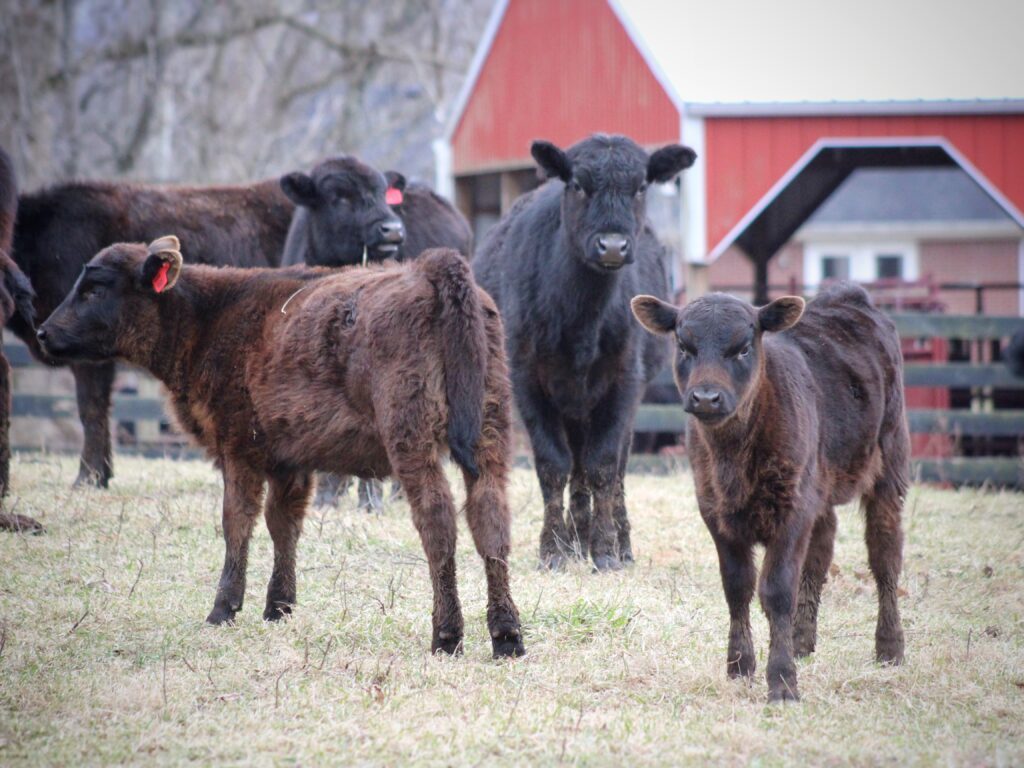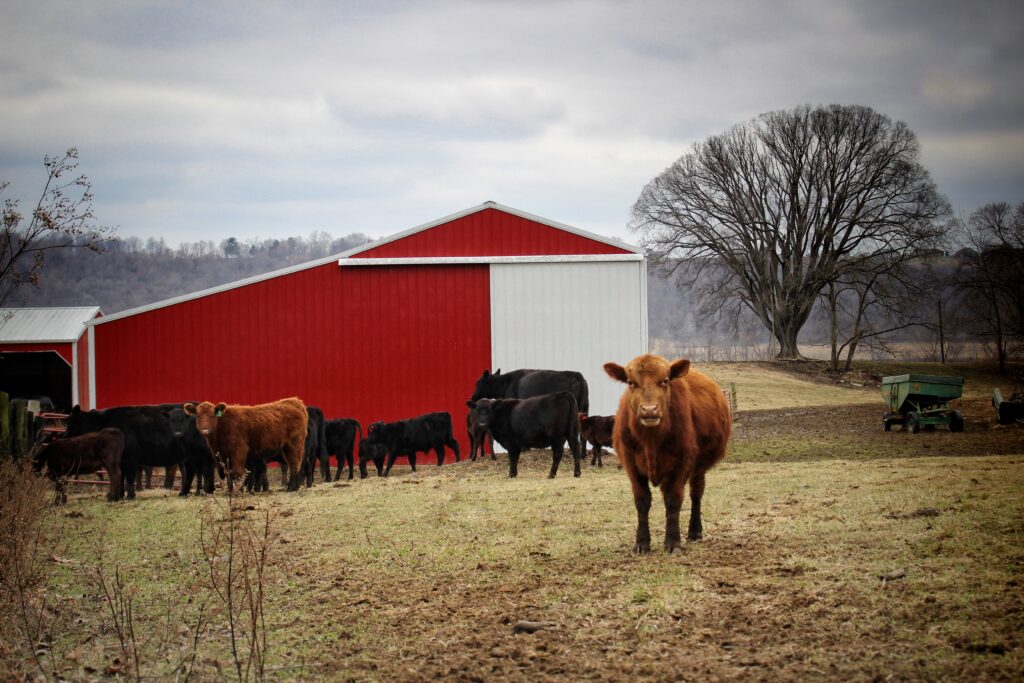By STACEY BURKHARDT
As I’m close to leaving my fifties and pondering retirement soon I continue to have more reflection on my time on this land and how I want to spend my remaining days in more harmony with my environment.

There is a lot of talk about beef cattle and their impact on the environment.
While I recognize the concerns many people may have with methane from cows entering the atmosphere causing harm to the environment, I see where there are some misconceptions as well.
I believe beef cattle production for protein and agriculture commodities can and should be produced sustainably.
A typical beef cattle producer in our area will take their beef cattle to Producers Stockyards in Owenton, KY (~ 1hr 15min drive) or Bluegrass Stockyards (~ 2hr 10min).
Smaller operators may only take their cattle to Sligo Stockyards (~ 30min). All of these stockyards ultimately transport the cattle on semi-trucks to very large feed yards throughout the Midwest in states like Kansas, Iowa, Texas, Oklahoma where thousands upon thousands of beef cattle are fed rations and given the suggested minerals, needed hormone shots to prepare them for final processing in one of the three to four large slaughterhouses in the US. The beef is then trucked throughout the United States to restaurants and grocery stores.
Countless miles, carbon monoxide, fossil fuels, electricity, labor, trucks, roads maintenance, feed, medicines are used to do this on a large scale.
You may ask how we can improve this process and reduce our carbon footprint.
We are a small family farm with 40 head of cattle. We practice rotational grazing, which keeps the soil fertilized while allowing grasses to regenerate more efficiently. We use best management conservation practices to keep the cattle out of sensitive areas such as creeks and streams. If we need to feed our calves, we buy from local farmers. We market our beef locally starting with friends and neighbors. We produce and finish the beef at the local butcher shop within a short drive for processing. Once meat is packaged it is picked up by our customers. This local approach lessens adverse impacts on the environment by significantly reducing transit miles from farm to auction barn to feedlot to grocery store.
It becomes clear that farm-to-consumer cattle farming yields a more harmonious environment, while sustaining local community consumer cycles.
This is why it is so important to keep supply chains close to home. I often think about how much food we can buy that is produced within a 30-mile radius from where we live. Like myself, you might aspire more local sustenance.

Support your local farmers markets. Grow a garden. Raise the chickens. You will eat healthier, have a better sense of satisfaction and save money as well. Grocery stores today resource food from hundreds of countries. Consider quality over quantity when considering food options. Sure there are countless options, but consider how many are loaded with preservatives and ingredients with 20 letter words or ingredients that contain more numbers than letters. Further, food recalls seem to be on the rise and restaurants such as McDonalds are having issues with food safety as well.
During the 70’s and 80’s when I grew up Trimble County, KY had four farmers markets. There were no Walmart Supercenters. Many local farmers raised large gardens, farmed vegetables crops that were sold locally and delivered to Louisville, Cincinnati, and Indianapolis.
With no farmers markets for decades, these last few years there has been great effort to revive local farmers markets. In light of this momentum, I encourage everyone to shop local whenever and however possible.
Such efforts, paired with sustainable local cattle farms operating on green principles like farm-to-consumer direct that shorten supply chains and lessen our dependence on corporations, will inevitably bolster progress toward ethical land stewardship and community engagement.
About the author
Stacey Burkhardt is a sustainable beef cattle farmer in Milton, KY. Burkhardt recently became a new board member for Payne Hollow on the Ohio. He also passionately believes 80’s music is indeed the best.